Wife of ex-Top Gun pilot slams ‘terrible injustice’ in extradition fight
A former US marine pilot will remain behind bars in isolation for at least four more months as he fights against an extradition order which has been labelled a ‘terrible injustice’.
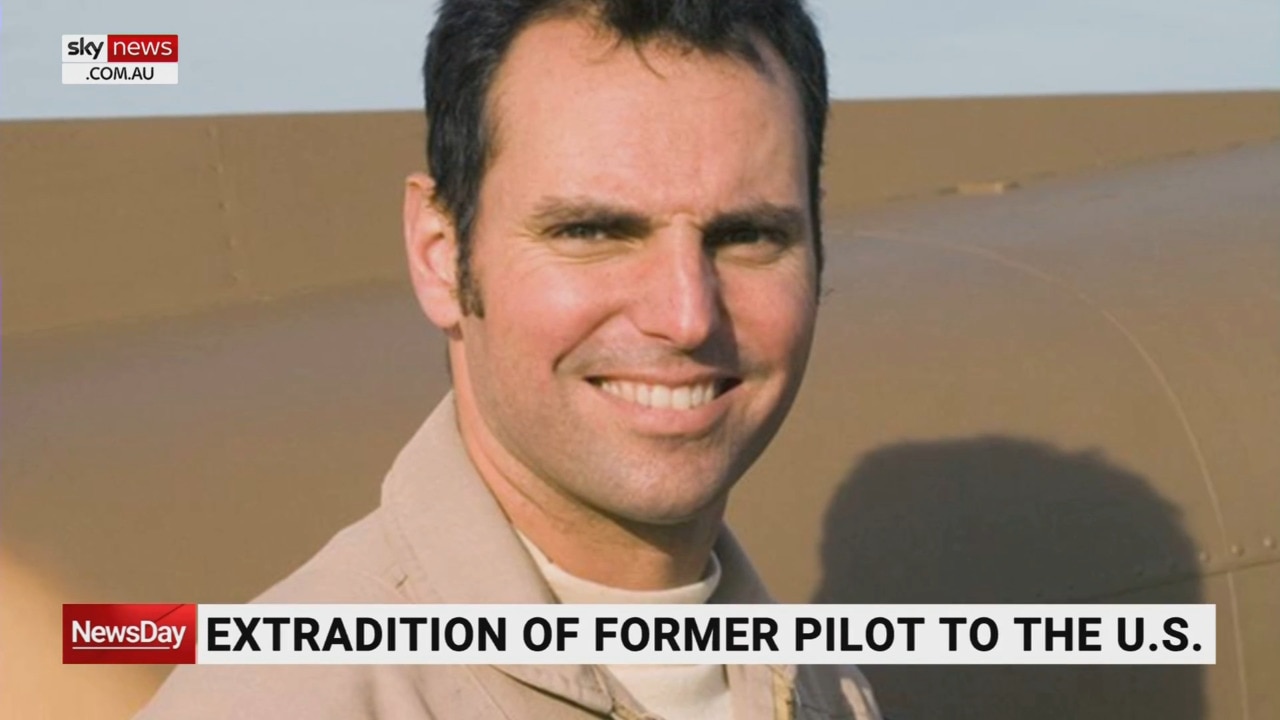
A former US marine pilot will remain in limbo for at least another four months as he fights against an extradition order which has been called a “terrible injustice”.
Daniel Edmund Duggan has been in custody since October last year after the US indicated it would seek his extradition for charges of conspiracy, arms trafficking and money laundering.
On Tuesday, his wife Saffrine Duggan stood outside Sydney Downing Centre Court with the couple’s six children amid a crowd of protesters holding signs demanding Mr Duggan’s release.
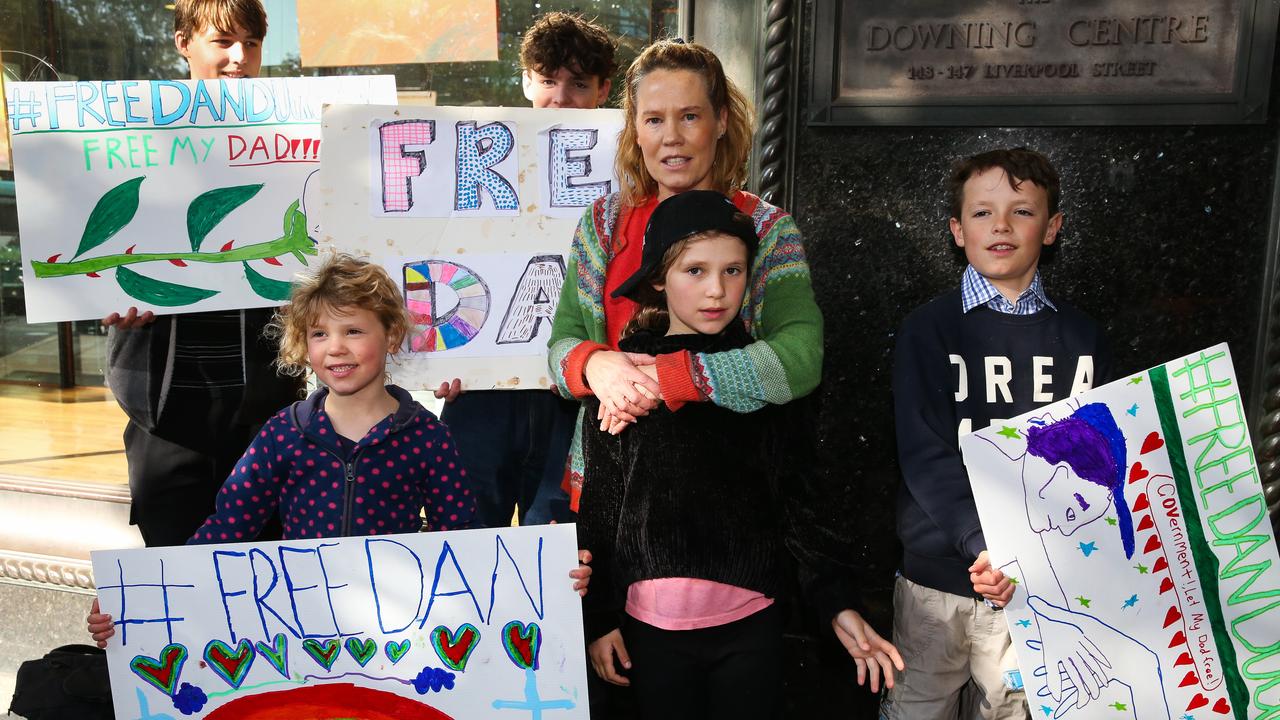
“Not only are we standing up for a loving husband, a father, and a friend – we’re standing up for Australian sovereignty,” she said over a megaphone.
“We are all determined to fight this terrible injustice and to demand that Australian sovereignty is respected in Australia.”
She told the crowd her husband had been detained in solitary confinement for more than nine months, even though he had no criminal record and was not charged with any offences in Australia.
US authorities allege the 54-year-old breached money laundering and arms export control laws while teaching foreign pilots.
The former US marine corps aviator allegedly trained Chinese military pilots while working at an international flying academy more than 10 years ago.
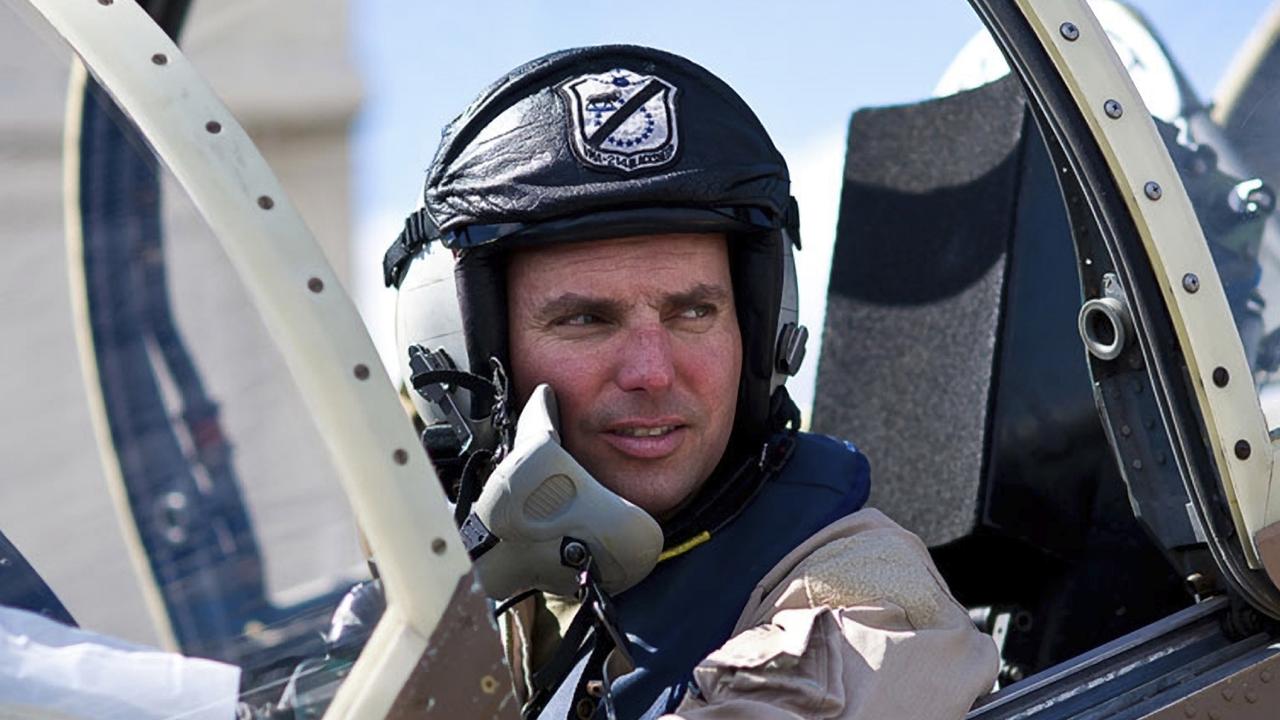
He is also accused of breaching US arms control laws by instructing pilots on how to land on an aircraft carrier.
The US authorities allege he was paid thousands of dollars for his expertise but had not sought US approval to teach foreign pilots.
Mr Duggan has repeatedly denied the allegations.
“Dan was kidnapped after dropping our beautiful children off to school with a cake in his hand for the school fete,” Mrs Duggan said as she choked back tears.
“We all should be very worried about what’s happening.”
She explained the US bid to extradite her husband had taken a “horrendous” toll on her family and their children, who have “all been terribly torn apart”.
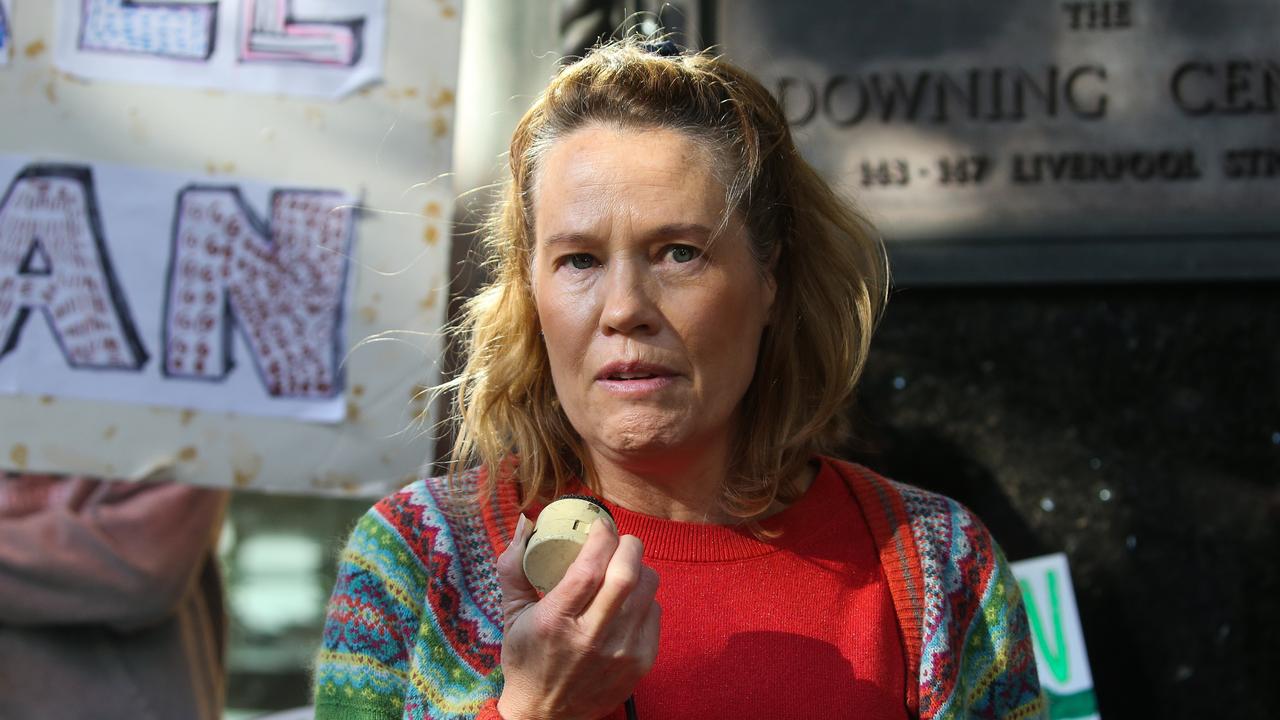
“We are saddened, we’re mortified, we’re horrified that something like this could happen. Not only to us but to anyone,” Mrs Duggan said in her emotional address to the crowd.
“We all need to stand up and stop it and let him free. Let him come home to us where he belongs.”
The protesters held signs declaring Mr Duggan was a “political prisoner in solitary” confinement at Lithgow Correctional Centre and demanding his release.
“Let him go!” read a sign held by the couple’s young son, while another proclaimed “I love you” under a rainbow.
After more than nine months of struggling with his absence, Mrs Duggan gave a stirring call to action in her husband’s own words.
“It takes a certain brave relentless persistence to push back and ultimately overcome such abuses of power,” she quoted.
“Today we are the brave ones.”
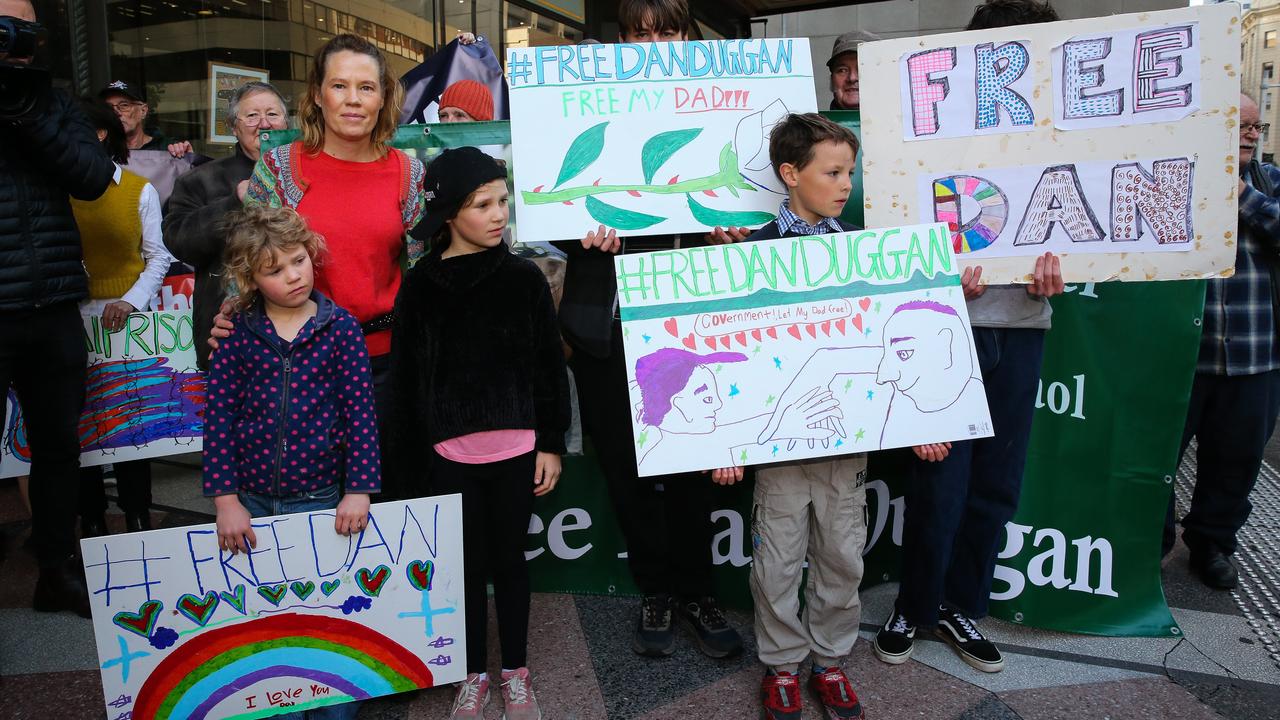
Mr Duggan’s legal team appeared in the Downing Centre Local Court on Tuesday to fight for a temporary stay on the US efforts to extradite him to North America.
The international tug of war took a turn in March when Australia’s Inspector-General of Intelligence and Security (IGIS) confirmed it had launched a formal inquiry into the case.
The investigation will assess the circumstances of Mr Duggan’s arrest after his legal team raised concerns the former fighter pilot had been lured back to Australia to be arrested.
On Tuesday, his barrister Bret Walker SC applied for the US extradition to be put on hold until the IGIS investigation is complete.
He argued that material gathered during the inquiry would prove that the alleged offence was politically motivated – a classification that would allow Australia to refuse Mr Duggan’s extradition request.
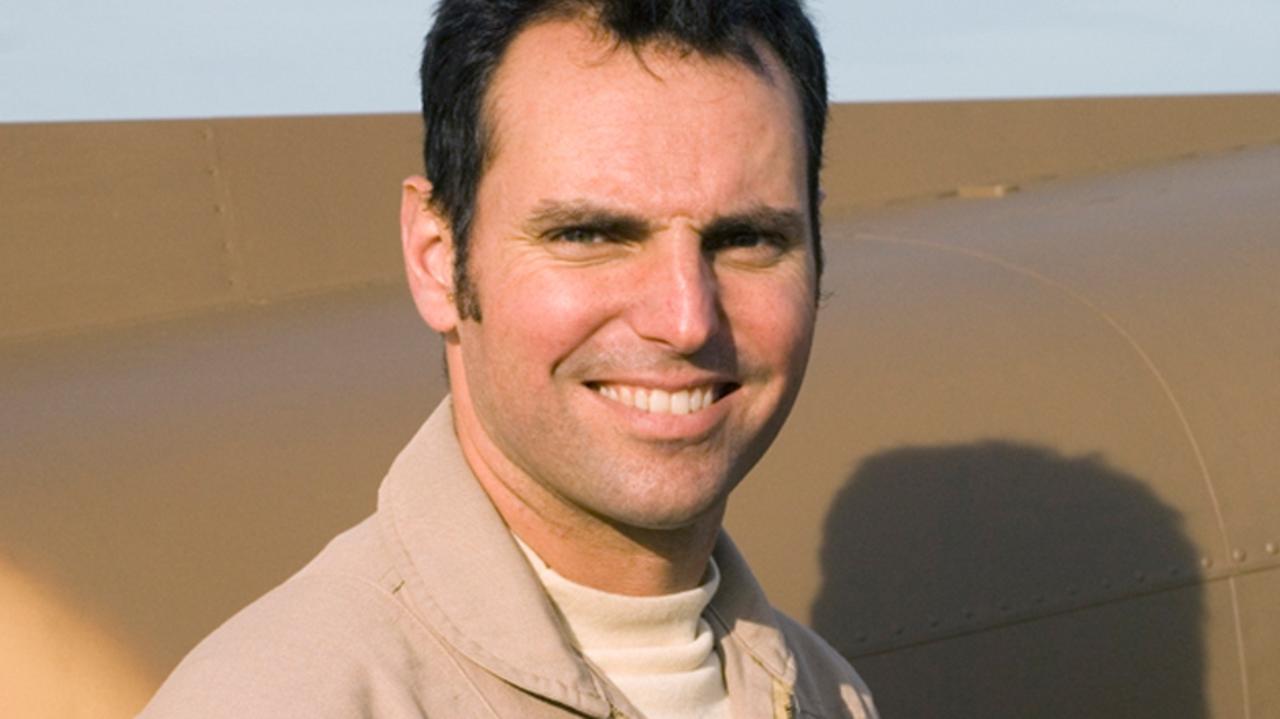
The court was told the material would include expert analyses of foreign policy and the deterioration of diplomatic relations between the US and China in the years since Mr Duggan was a flight instructor.
The lawyer representing the US, Stephen Lloyd SC, objected to the “contentious” characterisation of Mr Duggan’s alleged offence as politically charged.
The discussion of “what’s political and what falls outside of that” will be ventilated during the extradition hearing on November 24.
Mr Duggan’s legal team previously indicated they would argue the US charges were politically motivated and their client was the pawn in a geopolitical tussle between the US and China.
A magistrate in the local court will determine whether Mr Duggan is legally eligible for surrender to the US, but the ultimate decision will fall to federal Attorney-General Mark Dreyfus.
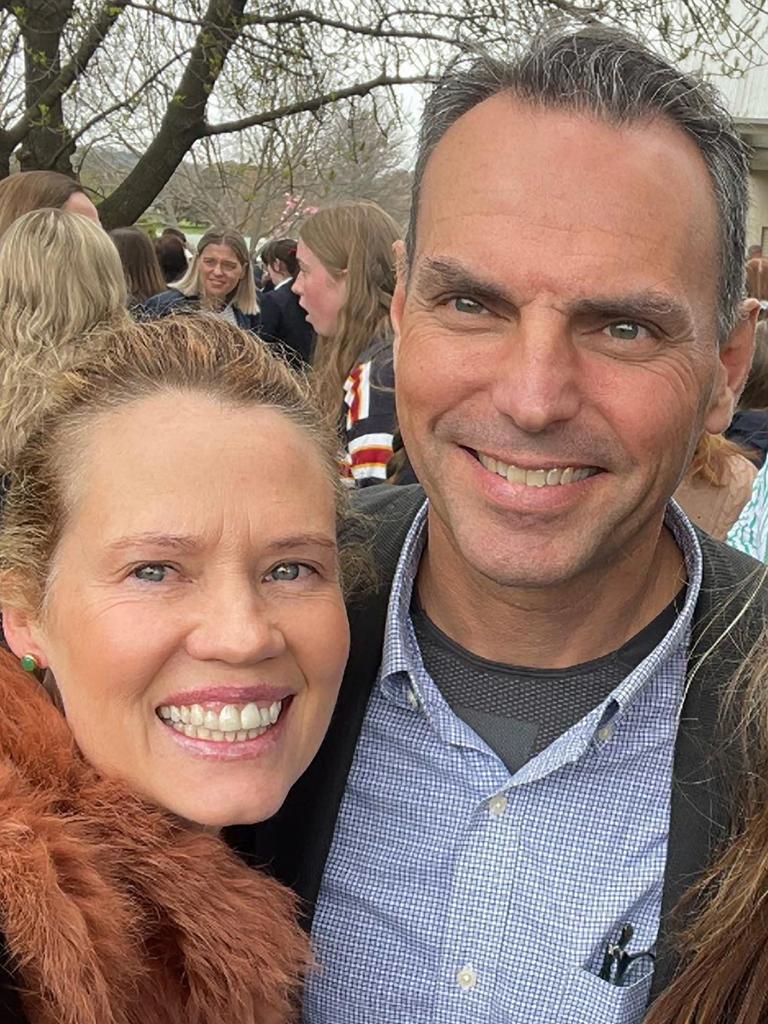
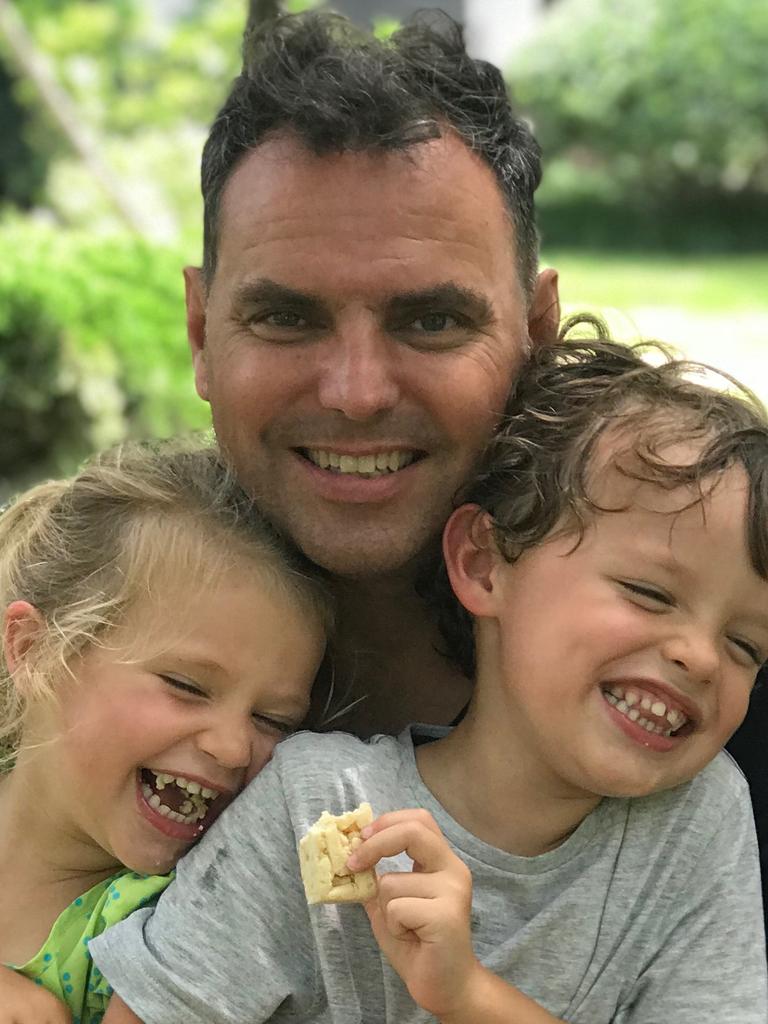
If the IGIS inquiry is not concluded before the hearing date in November, Mr Walker foreshadowed another request for an adjournment.
Mr Duggan spent 12 years flying in the US Marines before he moved to Australia with his family and relinquished his US citizenship.
He had been living in Orange, in central western NSW, with his wife and six children when he was arrested.




